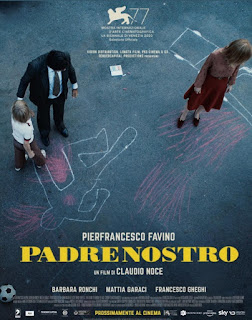SOUL ***
BLURB: With Soul, Pete Docter and Pixar strive to open up the ambitious existentialism of Inside Out onto a much broader canvas, and with a more challenging goal: to reify nothing short of the birth of individual consciousness, and to define what it means to be a subject in the world. Following, perhaps too loyally, in the footsteps of Inside Out, it imagines an ethereal, pastel-hued landscape that makes intangible ideas and feelings literal, from an endless recreational hall where unborn souls find their passions to a crepuscular zone populated by spirits that have lost their way. If this tends to read as naively reductive - and it almost inevitably does, as would any attempt to schematize the mysteries of being - it nevertheless represents a humanistic drive toward clarity, a fundamentally empathic sensibility echoed in the film’s themes of fraternity and fellow-feeling. Where Soul falters is in its narrative priorities. One wishes it spent more time with Joe immersed in his art, in the animators’ extraordinarily rich rendering of New York City, rather than repeatedly and dubiously deny a rare Black protagonist his own bodily autonomy. The madcap body-swap antics feel overly hectic, a formulaic kid-friendly premise not entirely at ease with the film’s contemplative aims. When Soul slows down - to luxuriate in the “flow” of playing music, to home in on sensory impressions, to apprehend life’s sheer plenitude - it soars. For the most part, this is enough. The busy plot mechanics and fuzzy metaphysics don’t dim the film’s timeworn, but deeply felt message: that existence itself is worth living for.













